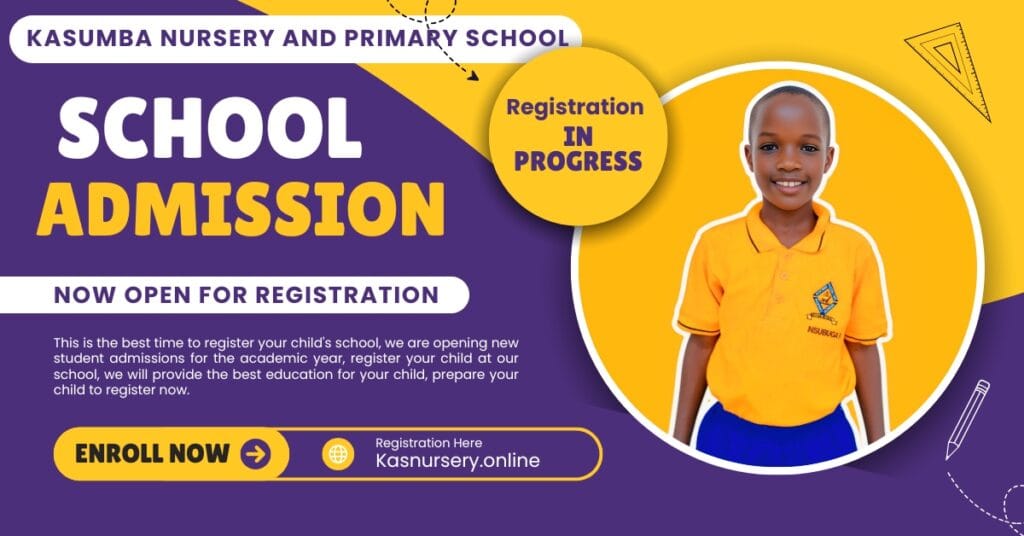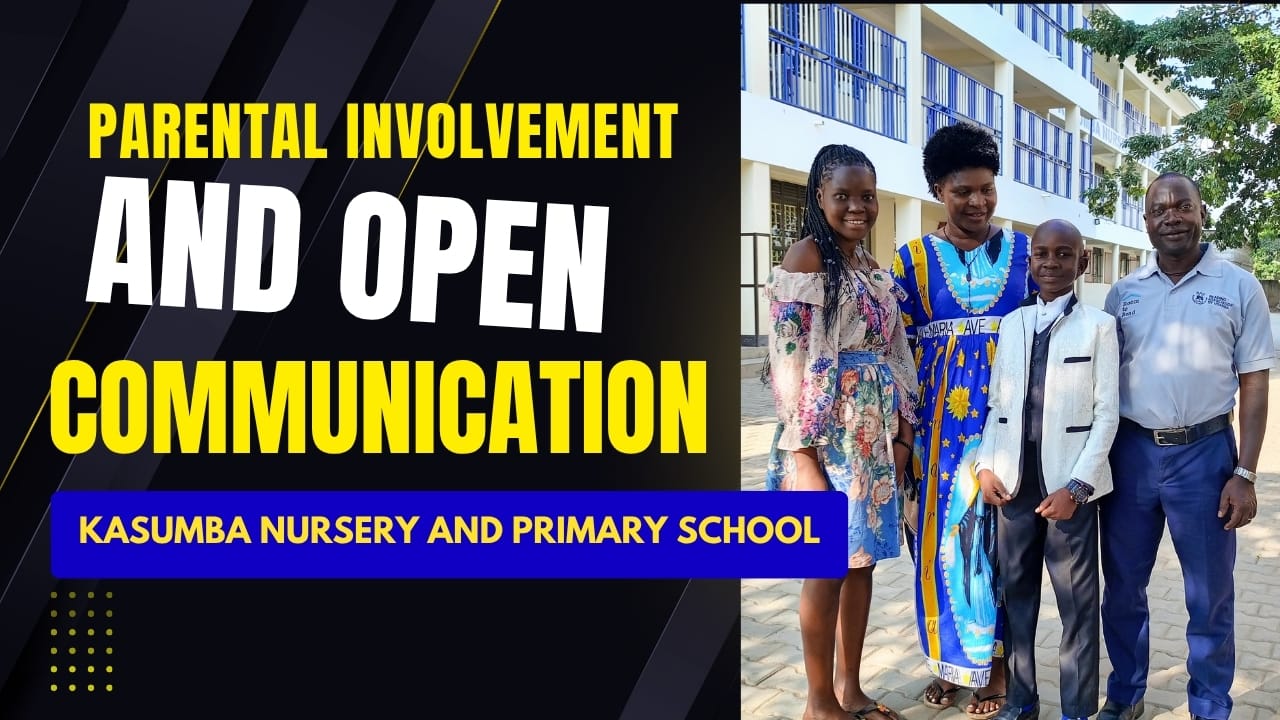Introduction
At Kasumba Nursery and Primary School, Kasumba Nursery and Primary School encourages parental involvement and open communication as a foundational pillar of our educational philosophy. In our culture, parents are indispensable partners, not just guests. We believe a child flourishes best when educators and families operate with shared vision, open channels, and mutual respect. This article explores 10 strategic ways we bring parents into the heart of our school community, deepening trust, strengthening support, and maximizing impact.
Table of Contents
A True Partnership: Why Kasumba Nursery and Primary School Encourages Parental Involvement and Open Communication
We don’t pay lip service to partnership, we operationalize it. Our school structures include parent representation in policy discussions, advisory meetings, and curriculum feedback loops. When parents participate, we listen and act, ensuring decisions reflect real needs, not just administrative convenience.
Weekly Updates: Curriculum, Conduct, and Care
Every week, families receive a concise but rich bulletin. This includes:
- Curriculum Snapshot: Reading focus, mathematics targets, science experiments, cultural themes
- Behavioral Highlights: New social skills observed, milestones like personal responsibility
- Health & Safety Notes: Reminders about hydration, hygiene, immunization days
- Upcoming Events: Field trips, dress‑down days, book fairs
These updates arrive via emails and printed bulletins, so no parent is left out. The tone is informative and actionable, never vague.
Termly Conferences: Data‑Driven, Caring, Actionable
Our parent–teacher engagements are structured around these pillars:
- Academic Progress Chart: Individual strengths, notable achievements, areas for growth
- Behavioral & Emotional Feedback: Social adaptability, resilience, and classroom citizenship
- Personal Learning Plan: SMART (Specific, Measurable, Achievable, Relevant, Time-bound) targets with clear home actions
- Follow-Up Schedule: Agreed checkpoints, homework expectations, reading goals
Teachers prepare student work samples, observation notes, and progress graphs so parents leave with clarity, not conjecture.
WhatsApp and Messaging Platforms: Real-Time, Respectful, Responsive
Class WhatsApp groups are tightly moderated. They follow simple communication principles:
- Teachers post reminders, photos after events, and short bulletins daily.
- Parents ask questions or raise concerns; teachers reply within set hours.
- Emergencies are escalated well beyond class groups.
- We maintain professional tone: warm, respectful, and solution‑focused.
It’s a communication loop, not a one-way broadcast.
Open‑Door Policy & Individual Appointments
Administrators and teachers block dedicated hours weekly when parents can drop in, no appointment necessary, for non-urgent discussions. For in-depth topics, scheduled meetings are offered. Every parent contact is logged and actioned, and follow-up phone calls or emails track progress.
Parent Workshops & Learning Forums
Each term, we host interactive sessions:
- Curriculum Clarification Workshops: Parents learn our teaching approach in literacy, numeracy, and creative arts.
- Parenting Skills Seminars: Attachment theory, positive communication, behavior support strategies.
- Tech Talks: Demonstrations of online tools, reading apps, and safe screen use.
These are practical, not theoretical, sessions giving parents tools they can implement immediately at home.
Feedback Loops: Surveys, Suggestion Boxes, and Responsive Change
We proactively collect feedback through:
- Pulse Surveys: Quick questions after events or term-end to gauge satisfaction.
- Suggestion Boxes: Physical and digital options for anonymized ideas or concerns.
- Response Reports: After each survey, we publish summary results and planned changes.
Parents see real improvements, whether it’s adjusting the school calendar, improving drop-off flow, or enhancing classroom routines.

Sensitive Conversations: Private, Empathetic, Informative
When academic or social issues arise:
- Teachers inform parents promptly, with context and documentation.
- Initial conversations happen privately and empathetically.
- Clear action items are agreed upon, teacher responsibilities, home support, short-term plans.
- Regular check-ins follow until the issue resolves.
The tone is solution-focused, not punitive, and always centered on the child’s best interest.
Milestone Celebrations: Birthdays, Showcases, Graduation Involvement
Personal growth moments are shared with families:
- Parents are invited to participate in themed celebrations, class performances, and scholarship awards.
- Graduation ceremonies include parent-led segments.
- Parent volunteers often help organize these events, creating shared ownership and pride.
Parent Leadership: Committees, PTA, and Volunteer Roles
- Parent–Teacher Association: Meets monthly to support school initiatives.
- Event Committees: Parents take charge of logistics, sponsorships, creativity.
- Volunteer Roles: Lunch–room supervision, library support, mentorship programs.
Parents bring strengths to the table, fundraising, community connections, creativity—that elevate our collective mission.
Peer Parenting Network: Supporting New Families
Seasoned parents “buddy” new families:
- They host informal coffee mornings.
- Share tips on uniforms, transport, morning routines.
- Offer emotional support and friendship.
That creates a culture of welcome—and amplifies the voice of community-driven support.
Technology Integration: Portal Access, Email Newsletters, Calendar Sync
We support busy parents by enabling:
- Parent Portal: Access student reports, attendance, and homework assignments.
- Automated Calendar Integration: Events sync directly with Google/Outlook calendars.
- Regular Newsletters: Highlight school news, alumni stories, staff profiles, and upcoming priorities.
Tech supports engagement, it doesn’t replace the human connection.
How Staff Are Trained to Communicate Effectively
We equip teachers and leadership with:
- Communication Workshops: Tone, clarity, active listening, empathy in difficult conversations.
- Role-Playing Sessions: Handling conflict, delivering feedback, managing expectations.
- Ongoing Coaching: Administrators review parent feedback and provide timely coaching to staff.
Our aim: consistent, relational, and professional communication across the board.
Conclusion
At Kasumba Nursery and Primary School, Kasumba Nursery and Primary School encourages parental involvement and open communication not as a marketing slogan, but as a strategic commitment. We design every system, workshop, and interaction to bring parents into partnership. Because when families and educators walk side by side,learning, listening, and acting, children grow into confident, compassionate, and capable leaders.
How often does Kasumba share updates with parents?
Weekly bulletins, daily WhatsApp reminders, termly conferences, and ad hoc invitations as needed.
Are both parents invited to participate?
Yes—fathers and male guardians are actively included, with flexible meeting times to accommodate working parents.
Can I give feedback anonymously?
Absolutely. We offer both anonymous digital forms and suggestion boxes at school.
Is there support for parents with limited availability?
Yes. We provide virtual meeting options and digital updates to ensure full inclusion.
How does communication benefit my child?
Open lines of communication build trust, reduce anxiety, help address issues early and support a coordinated approach to academic and emotional growth.




